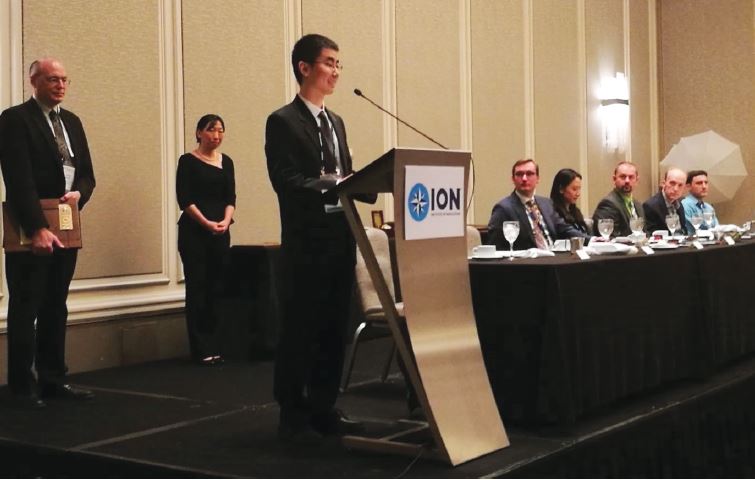 Tanker refueling. Northrop Grumman image
Tanker refueling. Northrop Grumman imageA U.S. Government Accountability Office (GAO) assessment that the U.S. Air Force made “significant errors” in awarding a $35 billion contract for refueling tankers to a consortium including the European Aeronautic Defense and Space Company (EADS) may affect the prospects of foreign participation in development of the Galileo system.
A U.S. Government Accountability Office (GAO) assessment that the U.S. Air Force made “significant errors” in awarding a $35 billion contract for refueling tankers to a consortium including the European Aeronautic Defense and Space Company (EADS) may affect the prospects of foreign participation in development of the Galileo system.
The tanker contract and subsequent advisory ruling by GAO, the oversight arm of Congress, have raised the issue of protectionism and political influence in large government acquisition programs. Northrop Grumman was the prime contractor on the successful tanker bid, but a large portion of the work would be done at Airbus facilities in Europe. EADS is the parent company for Airbus.
The Boeing Company, which appealed the Air Force’s tanker decision to the GAO, has also long expressed an interest in helping build the 26 additional satellites planned for Galileo — an interest that has probably grown in the wake of the company’s recent loss in the competition for the GPS IIIA contract. Boeing chose not to protest the GPS IIIA award, which has a value between $1.5 to $3.6 billion, depending on the exercise of contract options.
If the Air Force, which has 60 days to consider the GAO’s nonbinding recommendation, reopens the tanker process — perhaps with revised criteria such as domestic job creation and military industrial base — it may alter the shape of U.S. industrial competition for the Galileo contract.
The new regulation on Galileo issued in April allows European companies to rely on non-European sources for certain components and services in case of “demonstrated substantial advantages in terms of quality and costs, taking account of the strategic nature of the European GNSS programs and of the EU security and export control requirements.”
The new procurement plan seems to relegate non-European companies to subcontract status. But some companies would like to be able to compete for the lead contracts for the Galileo satellites, for instance.
The EC, however, has not yet issued a clear statement on this point, and the uncertainty in the matter of the award of the Air Force tanker contract may prolong that indecision.
Boeing in particular has been seeking to build relationships with EADS Astrium and Bremen, Germany–based OHB Technology AG, the other leading prospect to build the Galileo spacecraft. Another player is UK-based Surrey Satellite Technology Limited, which is in the process of being acquired by EADS Astrium but may still team with OHB to compete for the Galileo contract under an earlier agreement.
The first invitation of companies’ “expression of interest” in the Galileo procurement will probably be issued in July, followed by an invitation to tender bids. The European Space Agency (ESA) has responsibility for overseeing the bidding process but will not be able to make an award until it has completed an agreement with the European Commission (EC), which is funding the project. Currently, that agreement is not expected to be finalized until the end of this year.
A June 15 article in the influential German business newspaper Handelsblatt under the headline, “Boeing Snatches at Galileo,” reports that Boeing plans to make an offer to build the satellites. The article quotes an “insider” who says, “If Boeing makes an offer, then the Europeans can not simply sweep [the Galileo contract] from the table.”
The article, which appeared before the GAO aannouncement, continues: “The Americans can rely on even-handed treatment,” referring to the tanker contract, which it characterized as EADS’s “entry card into the U.S. market.”
“The Europeans had pressed many times for observance of a free competition [in the tanker contract],” the Handelsblatt writer concludes. “Accordingly, the U.S. government will examine the Galileo award process closely.”
Now, however, it will be the Europeans who are again observing the U.S. process closely.
A knowledgeable European observer of the process has suggested to Inside GNSS that as long as a European source offers a reasonable price, the European provider will get the contract. “Only in the case that European industry quotes very high prices not fitting in the present allocated budget will non-European industry have a chance.”
The responses to the expression of interest, when it comes out, will let ESA know whether non-European companies intend to bid, after which the agencies will probably make a final decision on the nature of the non-European participation.





